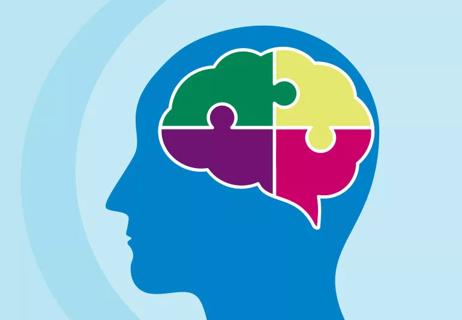Advertisement
‘Ictal pouting’ is subtle sign of frontal lobe seizures

Sometimes a frown is just a frown. But, surprisingly, sometimes it’s a vital clue your family or friends may notice when you’re having a seizure. Pinpointing that small sign may help your doctor understand your epilepsy better.
Advertisement
Cleveland Clinic is a non-profit academic medical center. Advertising on our site helps support our mission. We do not endorse non-Cleveland Clinic products or services. Policy
If a distinctly pouty frown appears suddenly in the middle or beginning of a seizure, often along with other unusual behaviors, it could mean you’re having a frontal lobe seizure.
Known as ictal pouting, this symptom occurs only during a certain type of epileptic seizure. Recognizing it can be critical to receiving proper medical care, says neurologist and epilepsy specialist Ahsan Moosa Naduvil Valappil, MD.
“When considering whether someone is a candidate for epilepsy surgery to treat uncontrolled epilepsy, we need to understand where the seizure is coming from in the brain,” he says.
The single most important thing to look for is what you’re doing during the seizure.
Ictal pouting is a subtle symptom those close to you could easily overlook if your arms and legs are moving a lot during a seizure or if you’re exhibiting other unusual behavior, such as continuously walking around or randomly picking up things.
“You have to really look for it,” Dr. Naduvil says. “With all the other behaviors and distractions, you could miss it.”
Ictal pouting typically looks like a symmetrical frown with both corners of your mouth turned down and your chin contracted.
Dr. Naduvil compares it to the expression of an unhappy toddler: “It’s similar to a young child’s look of displeasure, disappointment, disapproval, disagreement, doubt, distress or disgust.”
Advertisement
No. Ictal pouting is a symptom of some frontal lobe seizures. Symptoms during a seizure depend on the area of the brain that’s activated by the surge in brain electrical activity that happens in a seizure. Pouting during a seizure often indicates activation of the anterior cingulate cortex (ACC), the brain area that plays a role in attention, decision-making, impulse control and emotion.
It’s possible you’ll stay conscious during these seizures, but you can’t control your movements or communicate.
Because ictal pouting occurs only with seizures that affect the ACC, it can point your doctor to the right diagnosis. It’s particularly revealing if it appears within the first 10 seconds of the seizure and lasts five seconds or longer.
It can help doctors focus their attention on the ACC and surrounding brain regions as a possible source of the seizure. Sometimes they may take a brain MRI to look for a small scar in that area. At other times, ictal pouting may prompt doctors to place electrodes in or near the ACC to pinpoint where in the brain your seizures originate.
Typically, your doctor will try anti-seizure medication first. Between 60 and 70 percent of patients become seizure-free after trying one or two of these medications, Dr. Naduvil says.
If seizures continue after you’ve tried two or more medications, surgery may be an option. This typically involves removing or isolating a part of the brain that’s responsible for generating seizures.
Identifying the brain area responsible for generating seizures is complex and requires a diverse team of epilepsy specialists and various brain imaging tests. In some cases, brain mapping (placing electrodes directly on the brain) is needed to find where seizures start.
Once the seizure-generating brain area is identified, the next step is to determine if it’s safe to remove it. If this area isn’t responsible for other important functions, a neurosurgeon can remove it safely.
Overall, 50 to 80 percent of surgery patients become seizure-free, Dr. Naduvil says. Results vary based on many factors, including the cause of epilepsy and the type of surgery.
“If left untreated, patients with uncontrolled epilepsy experience a loss of independence,” he says. “If they lose their awareness, they can’t drive. It directly affects their quality of life.”
The bottom line: Ask your friends and loved ones to watch closely for any unusual signs the next time they think you’re having seizure. It may be as simple as a frown, but this may be a clue to the source of your seizure.
Advertisement
Learn more about our editorial process.
Advertisement

Some ‘flare-ups’ are temporary and expected, others can signal a need to change therapies

Our collective misremembering of events comes from a surplus of false memories

Most routine vaccines are safe for people living with multiple sclerosis — but be sure to talk with your care team about your needs

This alternative brain-body therapy focuses on unlocking pent-up feelings, memories and tension that may be stuck in your brain and body

Current research suggests 1 out of every 36 children in the U.S. has ASD — and that’s probably an undercount

Strokes in the left side of the brain are more common and the effects are typically more noticeable

These trendy fungi may promote a healthy brain, heart and gut, but more research is needed to say for sure

This vital nutrient helps your brain and body in many ways — and most of us need more of it

Focus on your body’s metabolic set point by eating healthy foods, making exercise a part of your routine and reducing stress

PFAS chemicals may make life easier — but they aren’t always so easy on the human body

While there’s little risk in trying this hair care treatment, there isn’t much science to back up the claims